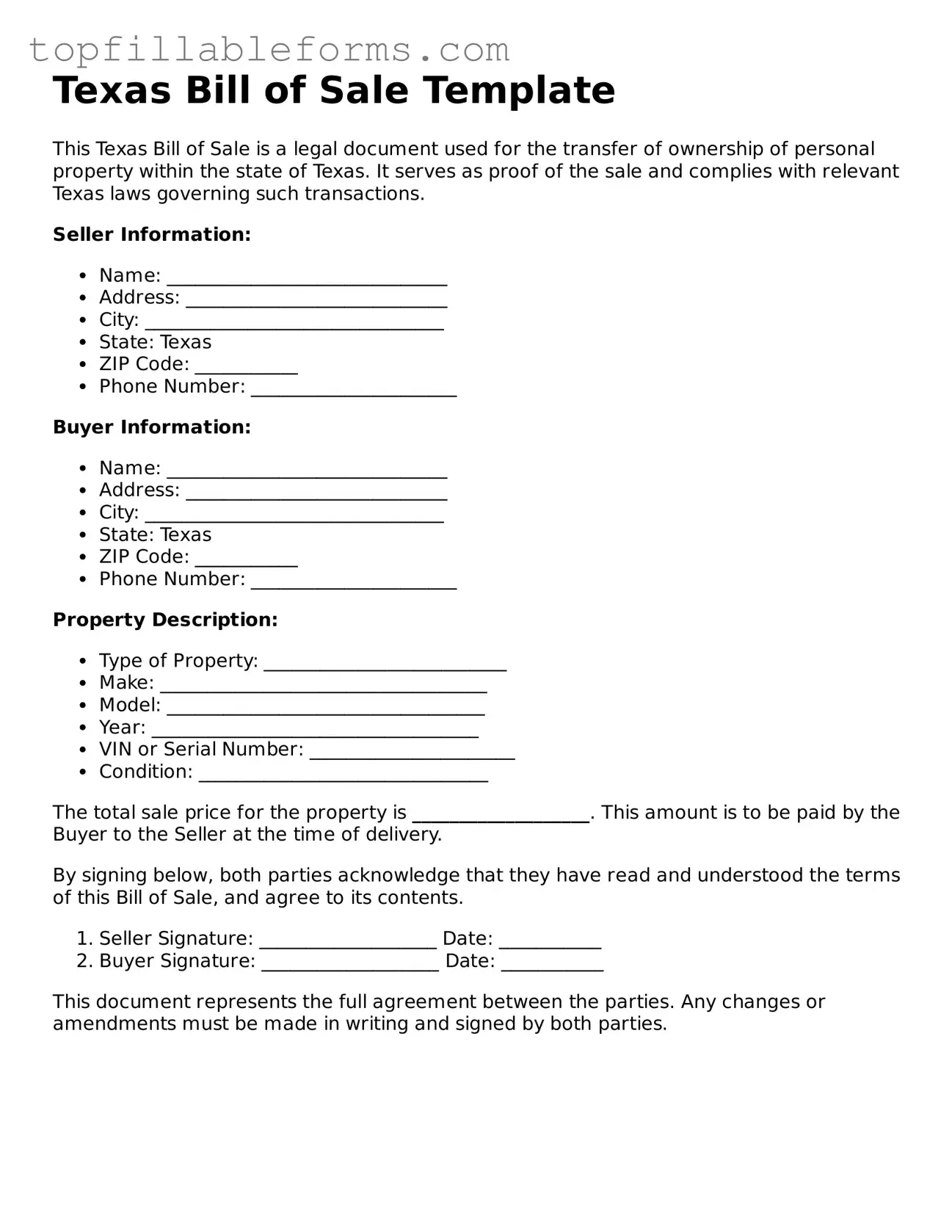Attorney-Verified Bill of Sale Template for Texas
The Texas Bill of Sale form is a legal document used to transfer ownership of personal property from one individual to another. This form serves as a record of the transaction, detailing the items being sold and the agreed-upon price. Understanding its components is essential for both buyers and sellers to ensure a smooth transfer of ownership.
Open Bill of Sale Editor Here

Attorney-Verified Bill of Sale Template for Texas
Open Bill of Sale Editor Here
Finish the form now and be done
Finish your Bill of Sale online by editing, saving, and downloading fast.
Open Bill of Sale Editor Here
or
▼ PDF File
